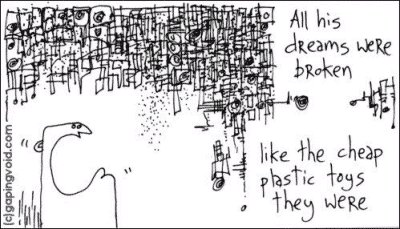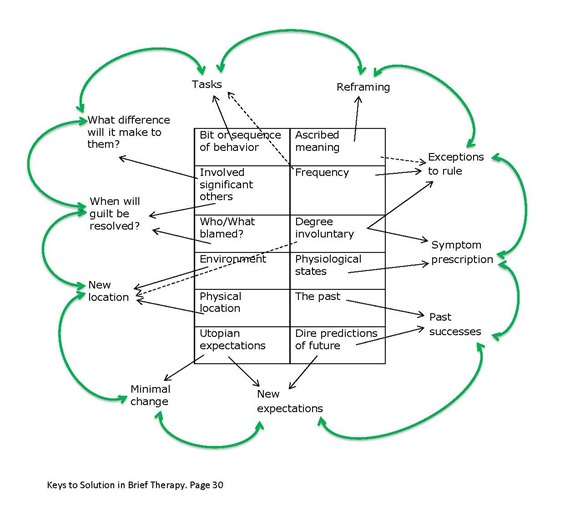
“I tell the managers that hire me I guarantee change and an improved team. They have to have the level of awareness to continue the success”
This was a direct quote from a “change leadership development expert” when I responded to the silliness of blaming the organization and its leaders for not accepting his change and leadership process.
Then I was in a meeting with another consultant, and she was complaining about all the work she does to help companies create strategic plans, but none of them want to do the work. When I responded, “Maybe your work is not good enough, or it was not what they needed.” She offhandedly remarked, “I’ve built a successful company. I know what to do, and, oddly, others have to be shown.”
This made me think.
Do I blame those that hired me when my ideas for change or processes are not accepted or used within their organization?
They were smart enough to recognize a problem, find me, meet with me, discuss the challenge, co-construct and read a proposal, choose to contract with me, and have several meetings to work on the challenge.
It does no good to view someone as less than or lacking awareness. When you think like that, you treat the other person that way, and they respond in kind.
This is a problem within the organization development and executive coaching world. The concept of I am an expert, and this has worked elsewhere. Therefore if it does not work in this case, the other person must be the problem, not me.
Organization development and change coaching works best as a client-centered approach. Working together, respecting each party is knowledgeable about the goals, resources, progress-steps, and what works to make progress towards the goal.
What benefit comes from blaming the client?
When someone blames the client, “They are not at the proper level to understand how to apply this.” It makes the failure easier to handle. It is them, the other. This blaming the other keeps our fragile belief that we are an expert intact, allowing us to continue following the same process we think works.
The skills and methods that we have come to accept as valid and useful are allowed to remain unchallenged blissfully.
What benefit comes from blaming ourselves?
When someone blames themselves, “I am not at the proper level to help this person, my current process or knowledge was not good enough to help them achieve the goal. My attempted solution did not best match their need.” It makes the failure harder to accept unless you know that you have more to learn and that learning is a differentiator.
When the failure moves you to learn more about yourself, your field and your client, then you can progress.
What if it is the client’s fault?
It isn’t.
The client found and contracted or agreed to work with you. You also agreed to work with them. Your task is to continually seek to discover what works to support them to progress towards their goals. Every interaction is a chance to experiment in a small way to find an area of progress, determine how that happened, and determine how to do more of that. This tit-for-tat methodology has been proven to work time and time again.
Tit-for-tat being that instead of seeing failure to complete the task or take your advice as resistance, you see the resistance as a chance to find cooperation and make a different suggestion. You keep differing your ideas until you find an area of cooperation then you continue to use that area repeatedly.
What if it is your fault?
When an organization development or change process doesn’t work, and you know that you failed to provide the needed skills, process, capacity, or support – you have learned something.
The first thing you can do is be open with the client. Having a high-trust discussion that you have taken the team to a point, and are unsure how to progress, creates a coaching opportunity to see how change and learning actually happen. The client may have an idea, or you may have to do some research and identify multiple next steps to progress. This may add time or bring you out of scope for this project. That happens, and you have to accept it. No one expects you to be a hero unless you sell yourself as one. By modeling a growth-mindset and learner process, you show the team or person being coached that most solutions can be found through research, communication, and determining the next small step or experiment to take.
But the client never took my advice, and it really is their fault.
Organization development can be a tough field. People do not have to take your advice, and you have to give it. You have to make the environment rich enough so that multiple choices can work, and the person has to choose which option may work best. No one ever has to take your advice, even when they pay for it … no matter how much they pay.
As a consultant, your solution will not work for them. As an organization development consultant or executive coach, you have to work with the person to figure out their solution and work for them.
Working within organizations, the more executive the role, the longer it takes to determine when a decision is good or bad – this is called Requisite Uncertainty. For CEO positions, it may be minimally 2-years to maximally 20+-years to determine choices made and effective to make progress on goals. This Requisite Uncertainty is carried by the understanding that making choices in volatile, uncertain, complex, ambiguous environments is different from controllable known environments.
As an organization development consultant using process consulting skills and partnering for progress, knowing that you do not know what is best for someone else because you are not them, will show professional respect for the those you support through coaching and consulting.


